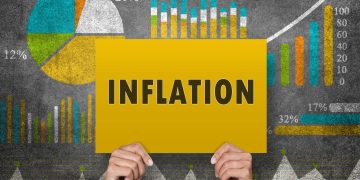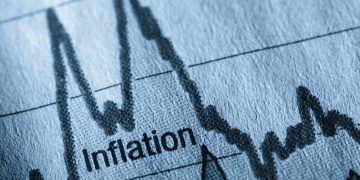Introduction
In recent years, the global real estate market has been experiencing significant volatility. While some regions have seen soaring property prices, others have faced stagnation or slight declines. The pandemic exacerbated the situation by causing shifts in demand for housing, pushing prices in certain markets to unsustainable levels. Governments around the world implemented a range of fiscal and monetary policies to stimulate the economy, such as low interest rates and mortgage leniency, further inflating housing prices. As the world emerges from the pandemic and central banks begin to tighten monetary policy, the question arises: Is the global real estate market heading for a major correction? Is the bubble about to burst? And how should investors navigate this potentially turbulent terrain?
In this article, we will explore the dynamics of the global real estate market, assess the risk of a real estate bubble, analyze the factors contributing to market instability, and provide strategies for investors on how to manage risks and opportunities in the current market environment.
1. Understanding the Global Real Estate Bubble
a. Defining a Real Estate Bubble
A real estate bubble occurs when property prices become artificially inflated due to speculative demand, often driven by factors such as excessive borrowing, optimistic investor sentiment, and a belief that prices will continue to rise indefinitely. These bubbles are typically unsustainable and are followed by corrections or bursts, during which property prices can plummet, leading to financial losses for investors and a potential broader economic downturn.
The classic signs of a real estate bubble include:
- Rapid price increases: When property prices rise far above their historical norms or fundamentals, such as local income levels or rental yields, this can indicate speculative behavior.
- Excessive borrowing and debt: Easy access to credit, low interest rates, and loose lending standards often lead to an increase in borrowing and, consequently, an overleveraged housing market.
- Speculation: When real estate becomes seen primarily as an investment vehicle rather than a place to live, speculative buying increases. Investors may purchase multiple properties, expecting prices to continue to rise, without considering long-term sustainability.
b. Historical Precedents of Real Estate Bubbles
Real estate bubbles are not a new phenomenon. The global financial crisis of 2007-2008 serves as the most recent example, when the US housing market bubble burst and caused a widespread recession. Property prices in many markets across the world fell dramatically, leading to foreclosures, massive financial losses, and economic instability.
Other notable examples include:
- Japan’s “Bubble Economy” (1980s): Japan’s real estate and stock markets experienced a bubble that eventually burst in the early 1990s. This triggered a prolonged period of stagnation in the Japanese economy, often referred to as the “Lost Decade.”
- Hong Kong (1997): The 1997 Asian Financial Crisis triggered a significant real estate bubble in Hong Kong, where property prices plummeted by nearly 50% in some areas, leaving many investors with massive losses.
Given these historical precedents, many analysts are now questioning whether the rapid rise in global real estate prices in recent years is sustainable, or if the market is poised for another major correction.
2. Factors Driving the Current Real Estate Boom
Several key factors have been driving the surge in property prices across various global markets, and understanding these drivers is crucial to assessing the risk of a real estate bubble.
a. Low-Interest Rates and Cheap Financing
The primary driver of the real estate boom over the past decade has been historically low interest rates. Central banks, particularly the US Federal Reserve, the European Central Bank, and the Bank of Japan, have kept interest rates near zero (or even negative) for prolonged periods to stimulate economic growth after the 2008 financial crisis and later during the pandemic.
Low interest rates have made borrowing cheap, leading to increased demand for housing, especially from first-time buyers, investors, and speculators. The result has been an upward spiral of property prices in many markets, including the US, Canada, the UK, Australia, and parts of Asia.
b. Pandemic-driven Demand Shifts
The COVID-19 pandemic reshaped consumer behavior, accelerating demand for larger homes, suburban living, and properties with more space for home offices. At the same time, urban centers, particularly in high-cost cities like New York, San Francisco, and London, saw some decline in demand as remote work became more widespread.
The pandemic also triggered supply chain disruptions and a shortage of materials, making it difficult for homebuilders to keep up with the demand for new homes. As a result, inventory in many markets has remained low, which, combined with high demand, has fueled price increases.
c. Rising Inflation and the Pursuit of Tangible Assets
As inflation rates have been rising globally, investors are increasingly seeking tangible assets, such as real estate, as a hedge against inflation. Real estate has historically been seen as a stable, long-term investment, providing both capital appreciation and rental income. In times of economic uncertainty and rising prices, investors often turn to real estate as a safe haven, further pushing up demand and driving prices higher.
d. Foreign Investment and Speculation
In many markets, particularly in cities like London, Vancouver, and Sydney, foreign investment has been a major driver of housing prices. Wealthy individuals from countries like China, Russia, and the Middle East have purchased luxury homes and real estate as both an investment and a means of wealth diversification.
While this has been a boon for real estate markets in certain cities, it has also led to inflated property prices, making it increasingly difficult for local residents to afford homes. This has sparked debates about housing affordability, and governments have started implementing measures to curb foreign speculation, such as higher taxes or restrictions on foreign ownership.
3. The Risk of a Global Real Estate Bubble Burst
a. Rising Interest Rates and Tightening Monetary Policy
As inflationary pressures rise and economies begin to recover from the pandemic, central banks have started tightening monetary policy by raising interest rates. The US Federal Reserve, for example, has signaled that it will increase interest rates several times in the coming years in an attempt to control inflation.
Higher interest rates will have a direct impact on the affordability of mortgages. As borrowing costs increase, demand for housing could decrease, particularly among first-time buyers and investors. This could lead to a slowdown in property price growth, or in some markets, a decline in prices.
b. Overleveraging and Debt Risks
The current real estate boom has been fueled in part by easy access to credit and excessive borrowing. Many buyers, particularly in rapidly appreciating markets, have taken on large amounts of debt in order to secure property. This overleveraging creates significant risks in the event of a market correction. If property prices begin to fall, homeowners and investors who have stretched their finances to the limit may find themselves in negative equity, leading to a wave of defaults and foreclosures.
In some markets, such as China, excessive borrowing in the property sector has already led to financial instability, with companies like Evergrande facing bankruptcy due to their massive debt obligations. A similar crisis in other countries could trigger a global real estate downturn.
c. Falling Demand and Demographic Shifts
As housing prices increase, many potential buyers are being priced out of the market. This could lead to a slowdown in demand, particularly in regions where wage growth has not kept up with the rising cost of housing. Additionally, demographic shifts, such as aging populations and reduced household formation in some regions, could reduce long-term demand for housing.
In some urban areas, there is also a trend toward “depopulation” as people move out of expensive cities to more affordable suburbs or smaller cities. If these trends continue, housing markets in major metropolitan areas could experience prolonged stagnation or price declines.

4. How Should Investors Respond to the Real Estate Market Adjustment?
Given the potential risks of a real estate bubble, investors need to be strategic in their approach to the market. Below are some strategies for managing risk while positioning themselves for potential opportunities:
a. Diversify Your Investment Portfolio
Real estate can be a valuable asset class, but it should not make up the entirety of an investor’s portfolio. By diversifying across different asset classes—such as stocks, bonds, commodities, and real estate—investors can reduce their exposure to the risks of a real estate market correction. Diversification helps to balance the overall portfolio and allows investors to weather downturns in any one sector.
b. Focus on Long-Term, Cash-Flowing Properties
In a potentially volatile market, investors should focus on acquiring income-generating properties that offer steady cash flow through rental income. Properties in desirable locations with strong rental demand, such as near universities or business districts, may be less susceptible to sharp price fluctuations. Additionally, these properties provide a cushion against market volatility, as rental income can help offset potential declines in property values.
c. Be Cautious of Overleveraging
Investors should be wary of taking on excessive debt to finance real estate purchases, particularly in a rising interest rate environment. High leverage can amplify losses if property values decline or if rental income fails to cover mortgage payments. Maintaining a healthy debt-to-equity ratio and ensuring that properties generate positive cash flow are essential to mitigating risk.
d. Monitor Market Fundamentals and Economic Indicators
Staying informed about market trends, economic indicators, and central bank policies is critical for navigating a potentially shifting real estate landscape. Investors should pay close attention to rising interest rates, housing affordability trends, and demand shifts. Additionally, keeping an eye on global economic conditions, such as inflation and GDP growth, can help investors anticipate potential market corrections.
e. Consider Real Estate Investment Trusts (REITs)
For investors who are cautious about directly purchasing real estate, REITs offer an alternative. These publicly traded companies allow investors to gain exposure to real estate markets without the need to own physical properties. REITs are generally more liquid than direct real estate investments and can provide steady dividend income. However, like any investment, they are not immune to market downturns and should be chosen carefully based on their underlying property holdings and management quality.
Conclusion
The global real estate market is currently in a state of flux, with rising property prices, low-interest rates, and inflationary pressures creating a perfect storm of conditions for a potential real estate bubble. While many markets remain strong, the risks of a correction or a burst remain, particularly as central banks tighten monetary policy and housing affordability becomes a concern.
For investors, the key to navigating this uncertain terrain lies in diversification, avoiding excessive leverage, and focusing on long-term, cash-flowing investments. By staying informed about market dynamics and carefully assessing risk, investors can position themselves to weather potential downturns while capitalizing on future opportunities in the real estate sector.













































